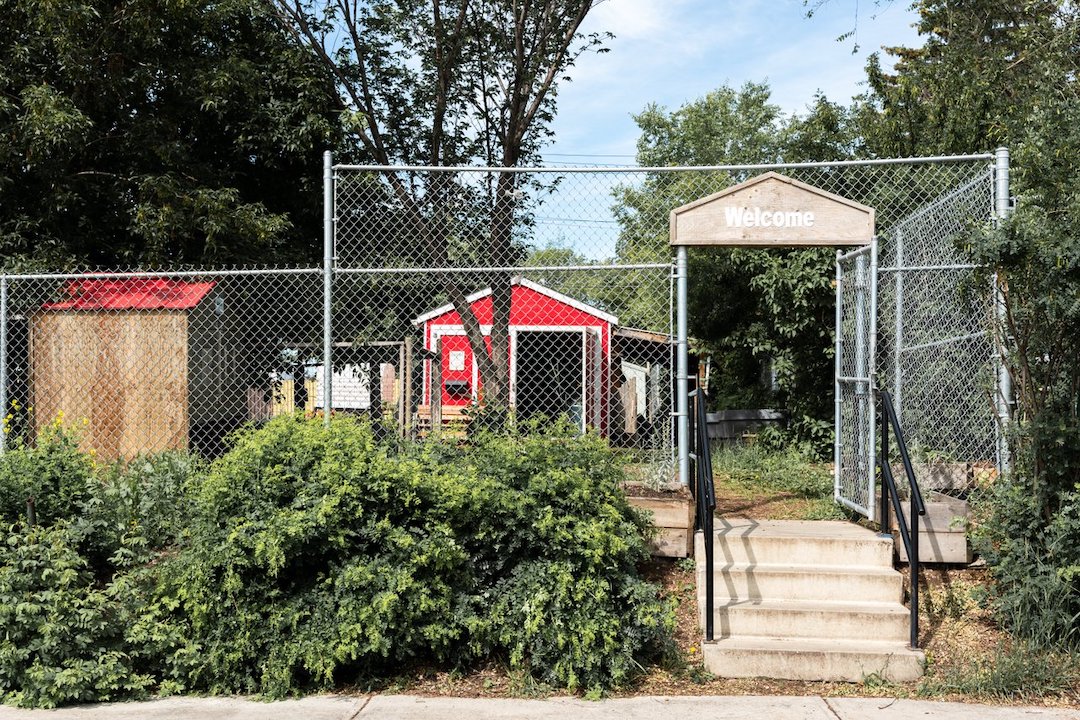The Edmonton Urban Farm is tentatively being relocated to a spot east of Borden Park on the Exhibition Lands, as its current home is set to be redeveloped into housing.
"We've landed on a new proposed location," the city's project lead for redeveloping the Exhibition Lands, Lovey Grewal, told Taproot. "It's definitely a positive for us that farmers won't have to make big changes to the locations of their plots."
Grewal would not share the precise location of the tentative new site, but said it is on the east end of Exhibition Lands in the "direct vicinity" of Borden Park. Selecting where the farm might go has involved engagement with stakeholders like Explore Edmonton, and urban farmers. Engagement continues as the new location still requires city approval. The move is tentatively scheduled to happen between the 2024 and 2025 growing seasons.
"The feedback revolved around making sure that the area of the new farm was suitable, and similar like-for-like area, as far as acreage goes," Grewal said. "It's not a community garden. It's a true urban farm."
Grewal said the existing site, next to the East Edmonton Health Centre, will be redeveloped to include up to six-storey housing, as well as single-family homes, townhouses, and row houses. The entirety of the redevelopment will take "20-plus years" to complete, he said.
Dustin Bajer, an urban farmer and beekeeper who has a plot at the farm, told Taproot he's sad to see it move, though he always knew it was a temporary location.
"The farm has been in operation for 10 years, and it looks very different than it did in year five and year one," Bajer said. "I know that a new site will also take time to develop."
Bajer hasn't decided if he'll follow the farm to its new home.
"I'm at this point where I'm looking at other alternatives, because I feel like I can take the lessons that I've learned there and bring that to vacant lots in my neighbourhood of McCauley, as an example," he said. "I would not have been able to do that when I first started at the Edmonton Urban Farm."

The City of Edmonton has found a potential site to relocate the Edmonton Urban Farm, which is currently located west of Borden Park. The farm will likely move to a spot east of the park to make way for housing development. (Supplied)
Bajer was part of the farm since the beginning. He started as an education coordinator before trying his hand at farming trees at the site. "I have had five, six years of figuring out my production model, making tons and tons of mistakes," he said.
He now has about 1,000 trees throughout his 1,500-square-foot plot on the two-acre site. That's much different from conventional tree farmers, who usually spread saplings about 10 feet apart, he said.
The key distinction between rural and urban farming is scale, Bajer said. Rural farms depend on slim profit margins that can be repeated many times over by using a lot of land. Urban farming's strengths, meanwhile, are its low cost and room for experimentation, he said.
Bajer said these distinctions are important. "If we're stuck on this idea of what (conventional) agriculture is, and we're trying to imagine it in the city, we're actually completely missing the opportunities entirely," he said. "I'm waiting for somebody to do something like saffron farming. I don't know of a single saffron farm in the province of Alberta."
Bajer said escargot farming is something that could be profitable on a small scale because it fills a niche. He also said honey that reflects a neighbourhood-level terroir can build a sense of community because it contains one specific area's environmental flavours.
The City of Edmonton does make a distinction between community gardens and urban farming. Bajer said that distinction may be detrimental to the success of growers in general.
"A farm is a for-profit thing; a garden is a community thing," he said. "What's been amazing about the Edmonton Urban Farm is they have not made that distinction. So what you get are people who are just gardening for themselves, or gardening with community … growing in their learning, and then they start to think, 'Oh, there might be a business opportunity here.'"
A city survey on urban farming closed in March. Applications to participate in the city's fifth annual pop-up community garden program closed in the same month.
"I feel like the fact that we're even having this conversation is great, but a lot of the questions (in the survey) were around how you feel about large equipment in your neighbourhood," Bajer said. "If we're imagining tractors farming vacant lots, I think we're completely thinking in the wrong direction."
The relocation of the urban farm is just one part of the redevelopment plan for the Exhibition Lands. Another part is the expansion of Borden Park by 2.5 net hectares. The demolition of barns adjacent to the park marks a completion milestone, while further progress will be made during construction along 79 Street over the summer.
"When we get into preliminary planning and design for the expanded Borden Park, there will be stakeholder and community feedback as part of that," Grewal said. "The opportunity may exist for urban agriculture to find its way into the expanded Borden Park."
Grewal said the best place to keep up on changes at the Exhibition Lands is its website.
